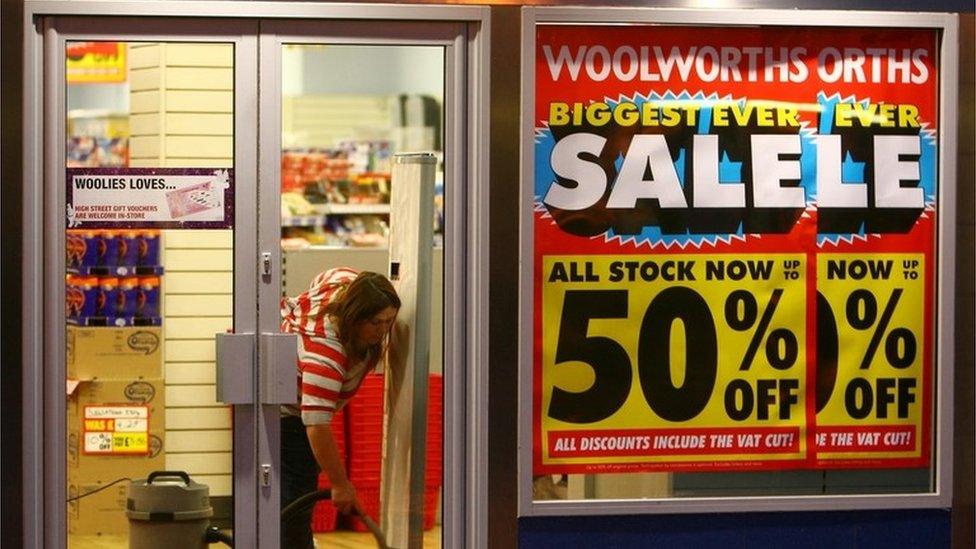What went wrong at Wilko?
- Published
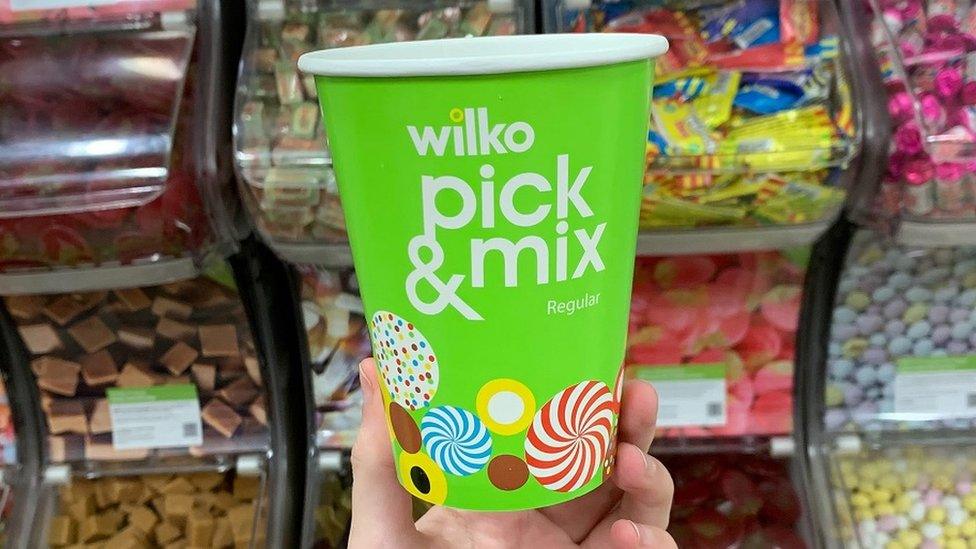
Selling pick 'n' mix, stationery and even garden tools: Wilko has styled itself as a budget UK homeware chain for more than 90 years.
With 400 stores across the UK, the chain is well-known for its affordable everyday items.
But in early August, the High Street stalwart collapsed into administration and put 12,500 jobs at risk.
Discount chain B&M said in September that it would take on up to 51 of Wilko's 400 stores in a deal worth £13m. And the owner of Poundland has agreed to take on the leases of 71 Wilko shops.
There had been hope that a further 300 stores could be rescued by the billionaire owner of HMV, Doug Putman. But the failure of his bid means the Wilko name will disappear from the High Street in the next few weeks.
The business was founded in 1930 when JK Wilkinson opened his first store in Leicester. It expanded across the Midlands initially and by the 1990s became one of Britain's fastest-growing retailers.
In 2012, Wilkinson began rebranding its stores as Wilko, and by 2014, most stores had emblazoned the new name on storefronts.
When we first heard the chain was struggling, we spoke to Wilko customers in stores and on social media.
James, a construction professional, remembered the first Wilko store in Leeds: "My dad loved it - a brilliant location at the Arndale Centre in Headingley. It sold such a wide range of things."
But Stephen from North Tyneside said it didn't have everything he wanted.
"We only go in for specific items. It's good for washing up powder. It's not what it was, I don't think," he said.
Woolworths gap
Wilko stepped into the High Street gap left by the collapse of Woolworths in late 2008, but has struggled over the past decade partly due to growing competition from the likes of Poundland and B&M.
Wilko's sales were larger than B&M's a decade ago, but recently its sales had also fallen below Poundland, Home Bargains and The Range.
Some analysts have pointed out that rivals seem to offer similar goods at lower prices - which made Wilko's business less appealing for potential suitors.
Shoppers had also noticed gaps on shelves after Wilko struggled to pay suppliers and at least one credit insurer withdrew trade cover, prompting some companies to pause deliveries.
Richard Lim, boss of the Retail Economics consultancy, said the level of investment needed to get the retailer back on its feet and regain the trust of their suppliers was "a significant stumbling point".
"While some of the stores have been acquired, the core business needs emergency surgery and the acquisition risks appear too high for most," he told the BBC.
Too many stores?
When Wilko fell into administration it had 408 stores across the UK, many of them in High Street locations in traditional town centres.
While these locations are convenient for shoppers without cars, since the pandemic there's been a shift to bigger retail parks and out-of-town options with more space.
"The purchase of 51 Wilko stores by B&M may have left the remainder of the estate less attractive for any purchaser," said Charles Allen, retail analyst at Bloomberg Intelligence.
"It seems likely that poor, or outdated locations, were one reason for Wilko's demise, so if some of the better ones were no longer available, a deal to rescue the remainder may have become more difficult."
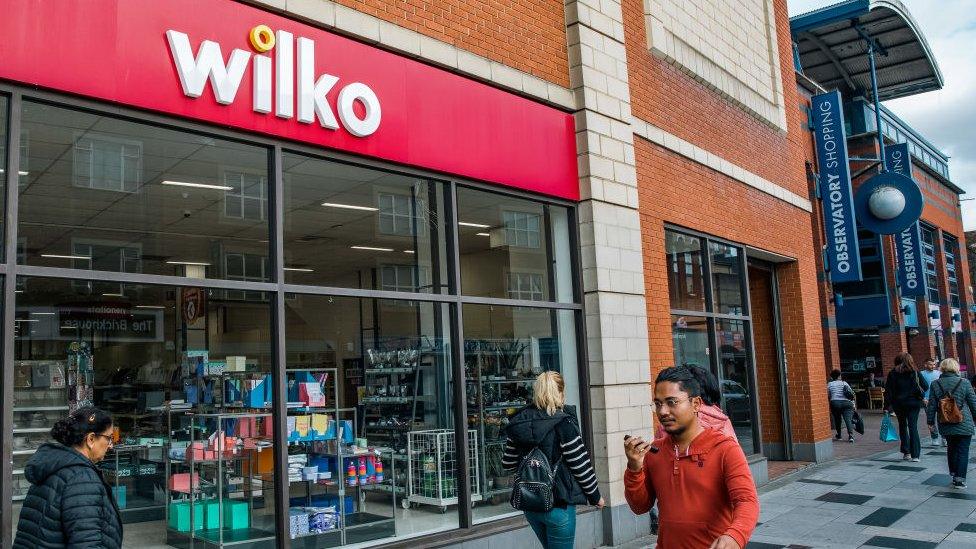
Richard Lim said Wilko's focus on the High Street had not helped it keep up with its rivals.
"B&M and Home Bargains have really invested in their stores and since the lockdowns in the UK, customers are really after that shopping experience.
"Wilko also struggled to join up their online and in-store operations," he added.
Retail analyst Catherine Shuttleworth said Wilko's problems were a result of bad decision-making by the owners.
"There were simply too many stores in the Wilko estate," she said.
"A cut to 250 stores would have been a sensible move by the owners of the business - tough decisions were needed but they simply weren't made.
"As the market became more competitive post-Covid and the shopper changed their shopping habits permanently, Wilko failed to act and this ultimately led to the position they are in today."
But nevertheless, many customers told the BBC they would be upset if their local Wilko closed.
"It's a bit like the old Woolworths," one said. "It would be a huge loss - not everyone likes online shopping."

Are you affected by the issues raised in this story? Share your experience by emailing haveyoursay@bbc.co.uk, external.
Please include a contact number if you are willing to speak to a BBC journalist. You can also get in touch in the following ways:
WhatsApp: +44 7756 165803
Tweet: @BBC_HaveYourSay, external
Please read our terms & conditions and privacy policy
If you are reading this page and can't see the form you will need to visit the mobile version of the BBC website to submit your question or comment or you can email us at HaveYourSay@bbc.co.uk, external. Please include your name, age and location with any submission.
Related topics
- Published11 September 2023
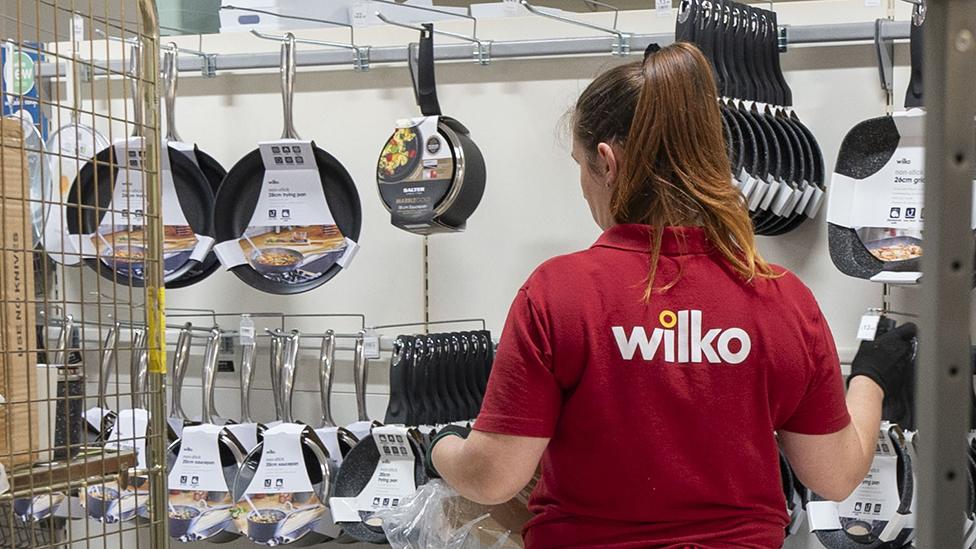
- Published7 September 2023
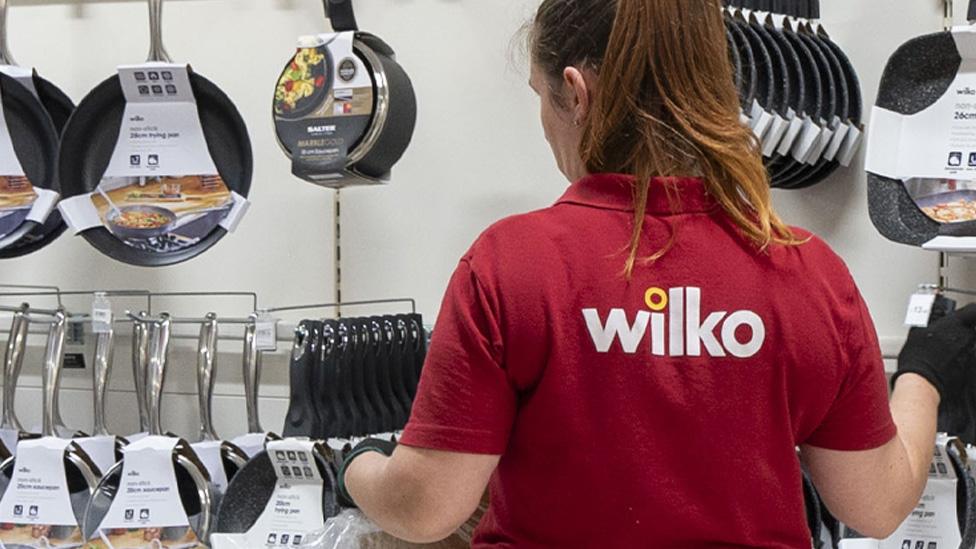
- Published5 September 2023
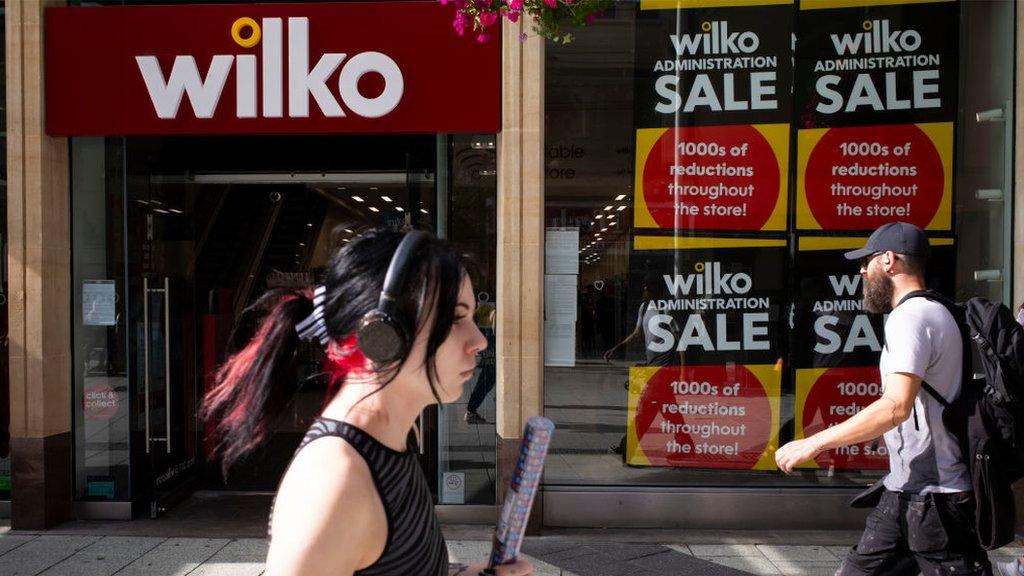
- Published4 August 2023
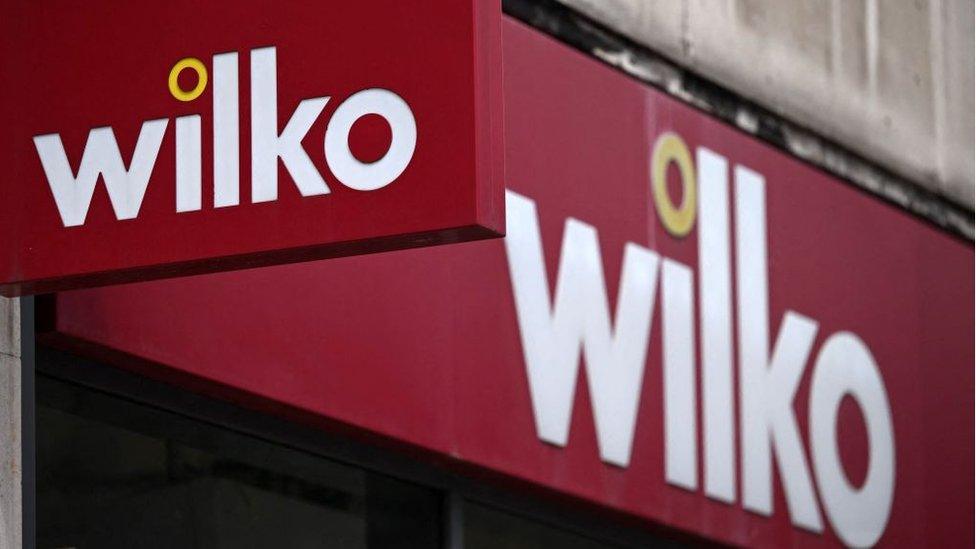
- Published3 August 2023
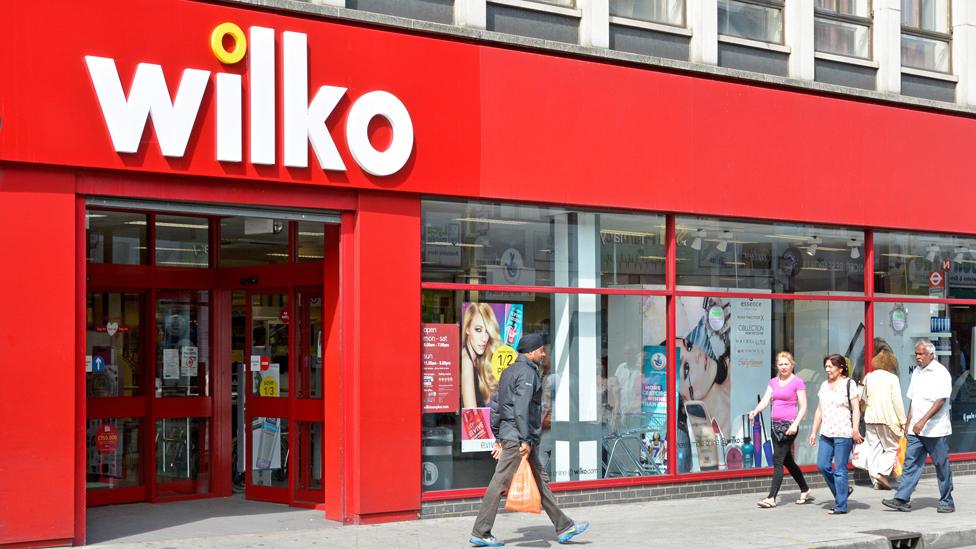
- Published7 April 2023

- Published30 December 2022

- Published19 November 2018
